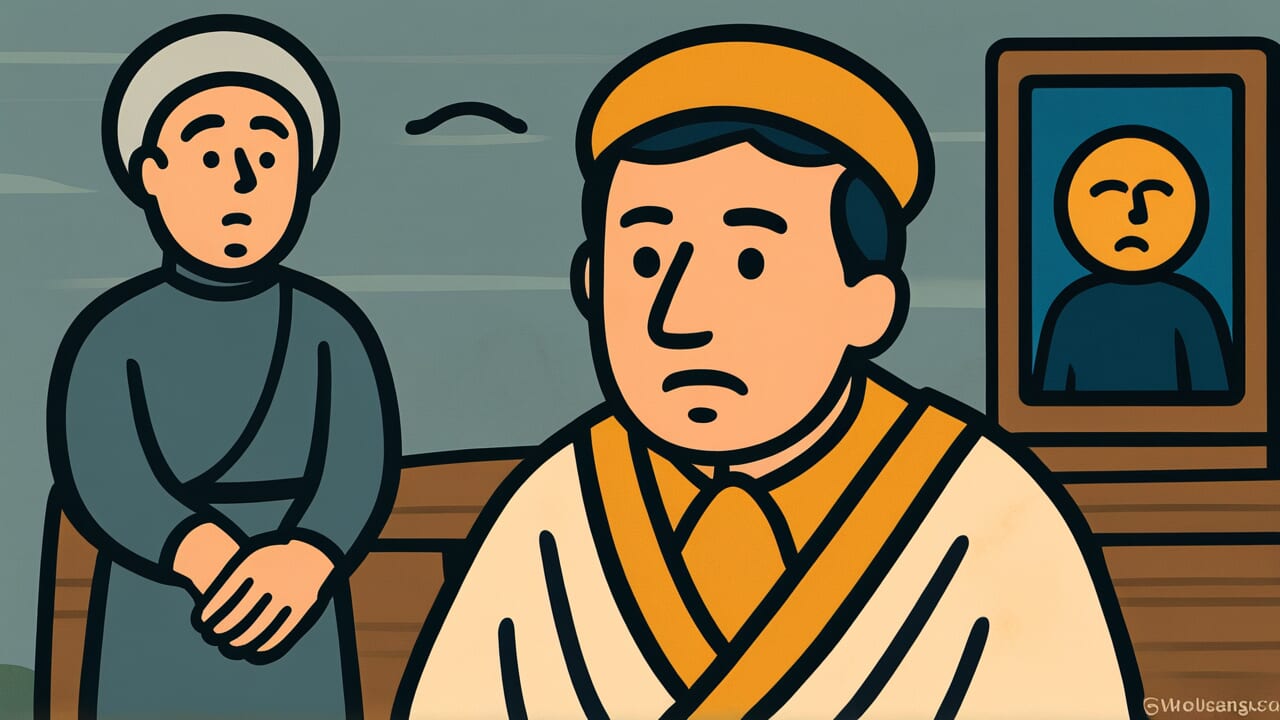How to Read “Oppression makes a wise man mad”
Oppression makes a wise man mad
oh-PRESH-un mayks uh wahyz man mad
The word “oppression” means unfair treatment or control over someone.
Meaning of “Oppression makes a wise man mad”
Simply put, this proverb means that even the calmest, smartest people will get angry when treated unfairly.
The literal words paint a clear picture. Oppression means harsh, unfair treatment that keeps people down. A wise man represents someone who usually stays calm and thinks clearly. Mad here means angry, not crazy. When you put it together, the message is powerful.
This saying applies to many situations today. Think about a good student who always follows rules but gets blamed for something they didn’t do. Or a hard worker who gets passed over for promotion because of favoritism. Even patient, reasonable people have limits. When pushed too far by unfair treatment, they will finally speak up or fight back.
What makes this wisdom interesting is how it explains human nature. We often expect wise people to stay calm no matter what happens. But this proverb reminds us that everyone has a breaking point. It also suggests that getting angry about injustice might actually be the wise response. Sometimes anger is the right reaction to wrong treatment.
Origin and Etymology
The exact origin of this proverb is unknown, though it appears in various forms throughout history. The idea behind it shows up in many ancient texts and writings. Different cultures have expressed similar thoughts about how unfair treatment affects even patient people.
This type of saying became important during times when social classes were very rigid. People in power often mistreated those below them. Common folk needed ways to explain why good people sometimes rebelled or got angry. The proverb helped justify resistance to unfair authority.
The saying spread through oral tradition and written works over many centuries. It appeared in different languages with slight variations in wording. The core message stayed the same across cultures. People recognized the truth in it because they had seen it happen in their own communities and lives.
Interesting Facts
The word “oppression” comes from Latin meaning “to press down” or “to weigh heavily upon.” This creates a vivid image of someone being crushed under a heavy weight.
The structure of this proverb follows a cause-and-effect pattern that makes it easy to remember. Many traditional sayings use this same format to teach lessons about human behavior.
Usage Examples
- Therapist to patient: “Your professor’s constant unfair treatment is clearly affecting your judgment – oppression makes a wise man mad.”
- Manager to HR: “Our best employee just snapped at everyone after months of being overlooked for promotion – oppression makes a wise man mad.”
Universal Wisdom
This proverb reveals a fundamental truth about human psychology and the limits of patience. Even the most rational, self-controlled individuals have emotional boundaries that cannot be crossed indefinitely. What appears to be a contradiction actually reflects the complex nature of wisdom itself.
The saying exposes an important survival mechanism built into human nature. Anger serves as a protective response when our basic dignity or rights are threatened. A truly wise person recognizes when tolerance becomes self-destruction. They understand that some situations require strong emotional responses to create necessary change. The capacity for righteous anger actually demonstrates emotional intelligence, not weakness.
This wisdom also highlights the relationship between individual restraint and social justice. When reasonable people finally reach their breaking point, it often signals that a situation has become genuinely intolerable. Their anger serves as a warning to society that something needs to change. History shows us that progress often begins when patient people decide they can no longer accept unfair conditions. The proverb suggests that such moments of anger from wise individuals should be taken seriously, as they represent carefully considered responses rather than impulsive reactions.
When AI Hears This
Smart people under pressure don’t just get angry randomly. They become dangerous because they understand exactly how things should work. When systems fail them, they can see every broken piece clearly. Their wisdom becomes a weapon that can tear apart the very structures that once valued their intelligence.
This creates a terrible trap for those in power. The smartest people make the worst enemies when pushed too far. They don’t just complain about unfairness like others might. Instead, they can map out exactly why everything is wrong. Their deep knowledge becomes fuel for precise rebellion against broken systems.
What fascinates me is how wisdom transforms under pressure. Logic doesn’t disappear when wise people get mad. It actually gets sharper and more focused on destruction. This seems backwards, but it’s perfectly human. The same brain that builds solutions can demolish problems with surgical precision.
Lessons for Today
Understanding this wisdom helps us recognize that anger can be both justified and necessary. The key lies in distinguishing between wise anger and foolish rage. Wise anger emerges from genuine injustice and aims toward positive change. It comes after patience has been tested and other solutions have failed.
In relationships, this insight reminds us to pay attention when normally calm people express frustration. Their anger likely signals real problems that need addressing. Rather than dismissing their reaction, we should examine what pushed them to that point. Similarly, we can give ourselves permission to feel angry about truly unfair treatment without seeing it as a personal failure.
For communities and organizations, this wisdom serves as an early warning system. When respected, reasonable members start expressing anger, leaders should listen carefully. These reactions often indicate systemic problems that require attention. Ignoring such signals can lead to bigger conflicts later. The proverb teaches us that wisdom sometimes requires standing up against unfairness, even when it feels uncomfortable. True peace comes not from avoiding all conflict, but from addressing injustice before it grows too large to handle peacefully.



Comments